Abstract
In several US states, the legalisation of euthanasia has become a question for voters to decide in public referenda. This democratic approach in politics is consistent with notions of personal autonomy in medicine, but the right of choice does not mean all choices are morally equal. A presumption against the taking of human life is embedded in the formative moral traditions of society; human life does not have absolute value, but we do and should impose a strict burden of justification for exceptions to the presumption, as exemplified by the moral criteria invoked to justify self-defence, capital punishment, or just war. These criteria can illuminate whether another exception should be carved out for doctor-assisted suicide or active euthanasia. It does not seem, in the United States at any rate, that all possible alternatives to affirm the control and dignity of the dying patient and to relieve pain and suffering, short of taking life, have been exhausted. Moreover, the procedural safeguards built into many proposals for legalised euthanasia would likely be undone by the sorry state of the US health care system, with its lack of universal access to care, chronic cost-containment ills, a litigious climate, and socioeconomic barriers to care. There remains, however, common ground in the quest for humane care of the dying.
Full text
PDF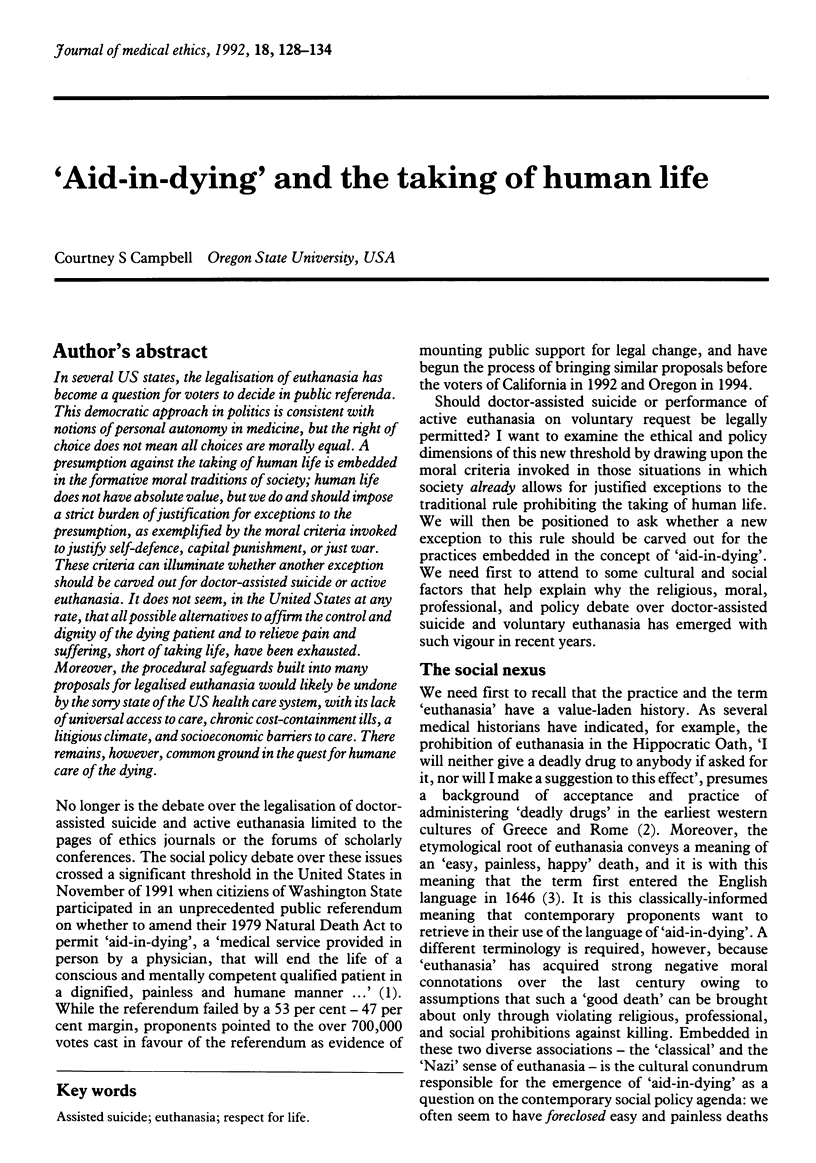
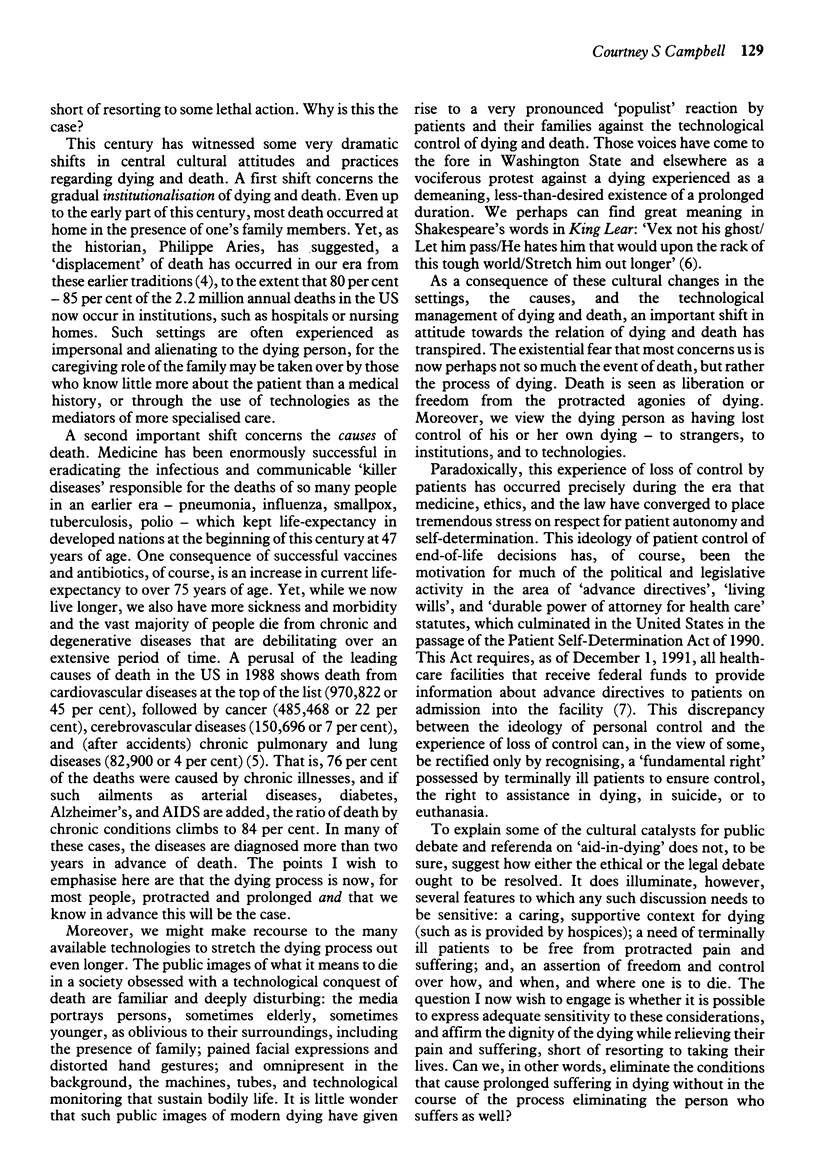
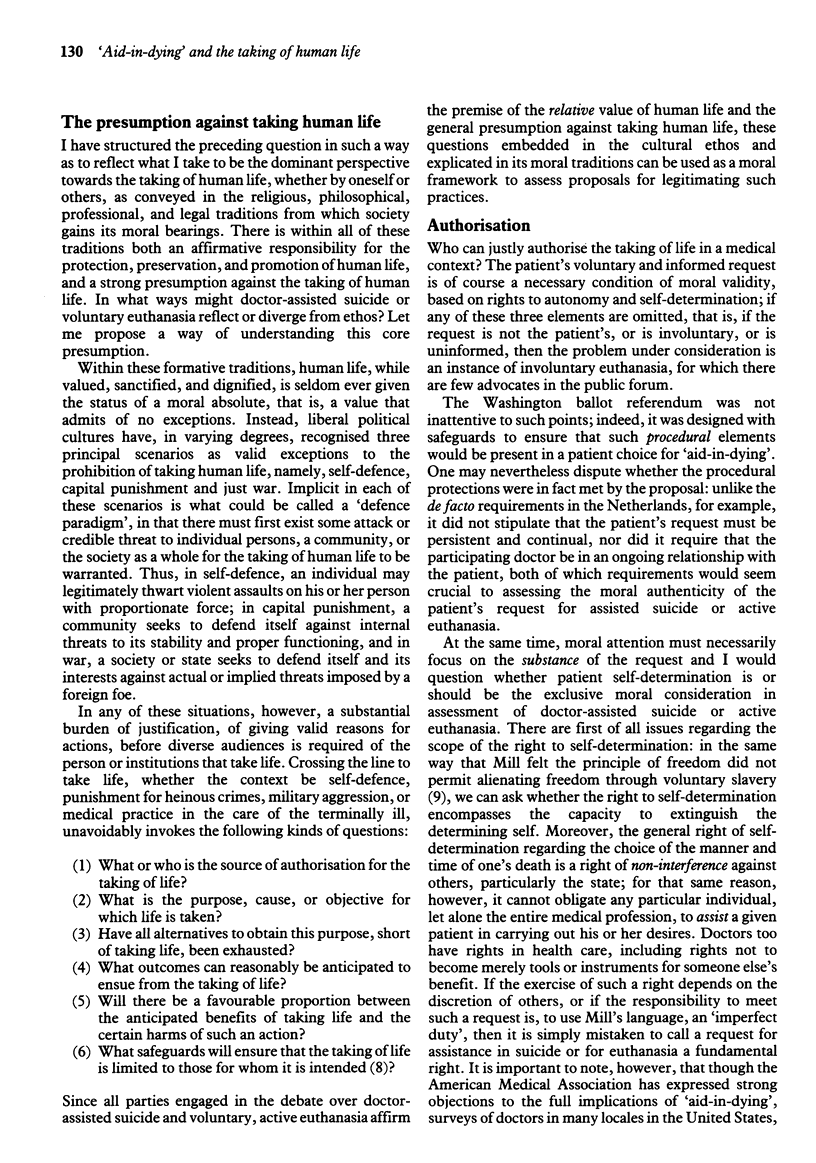
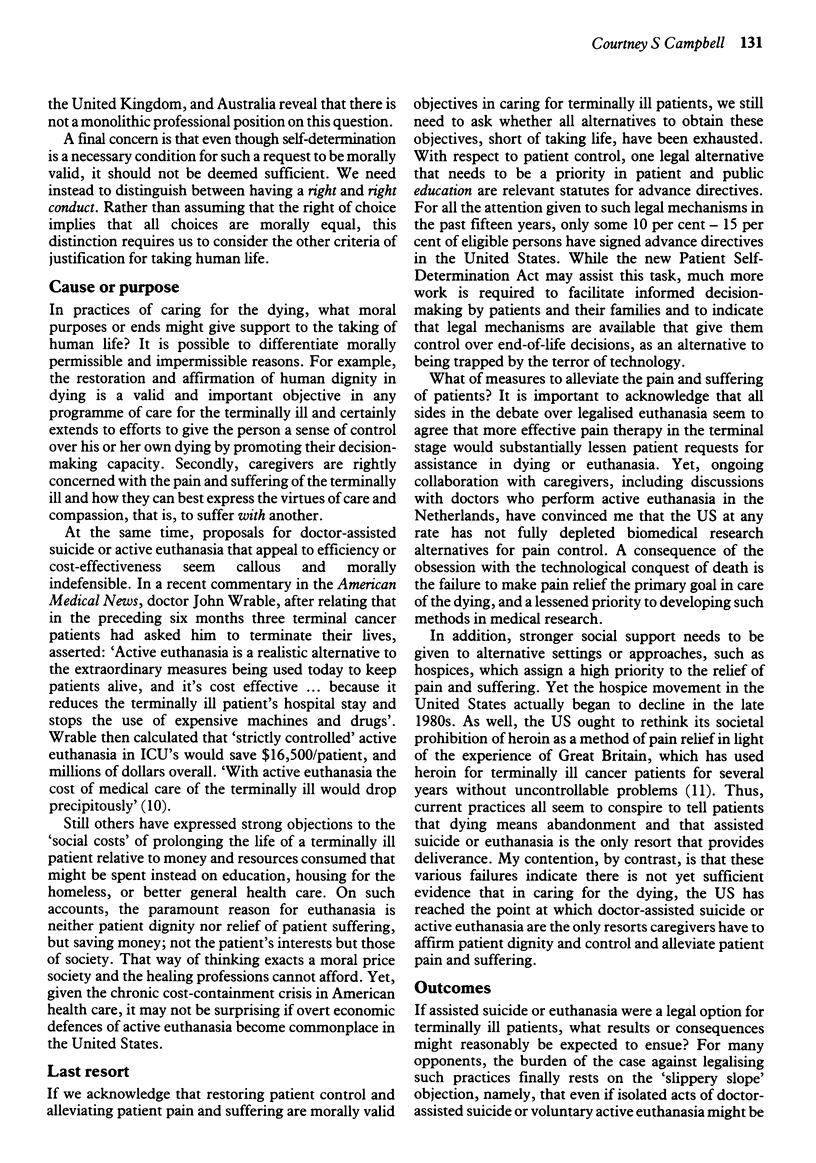
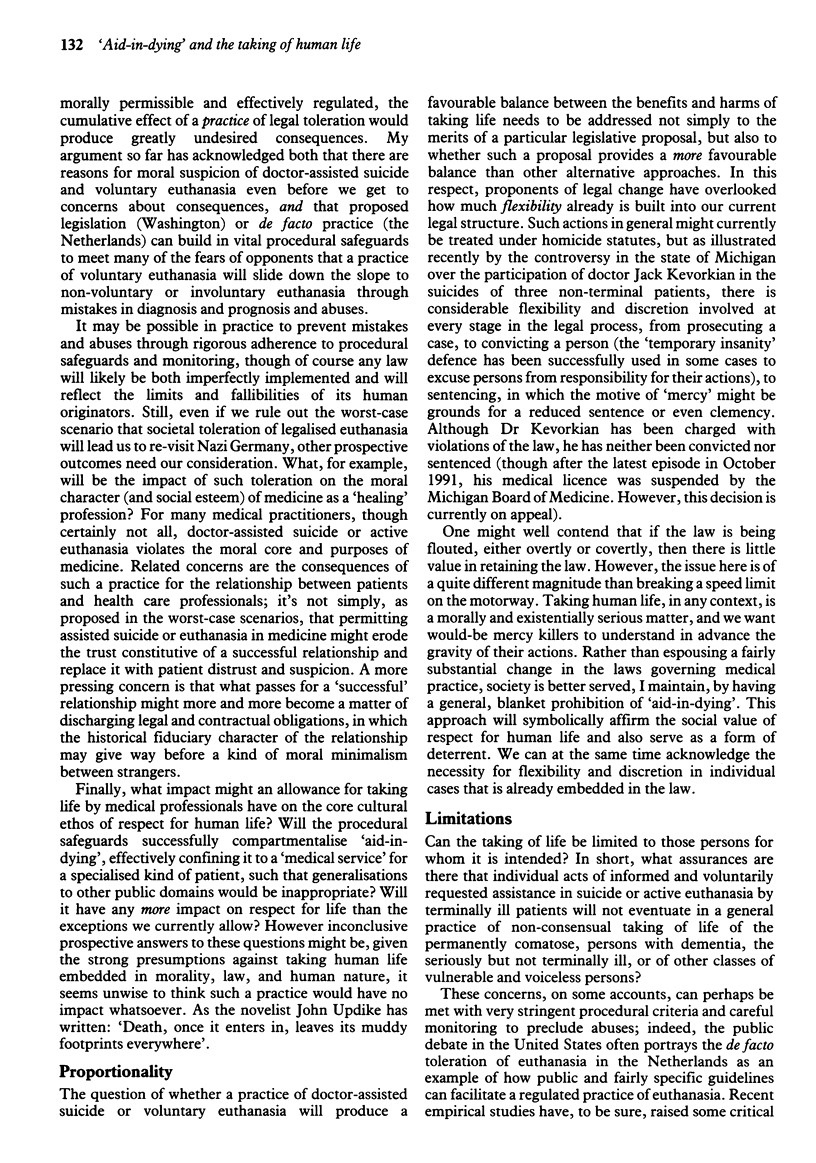
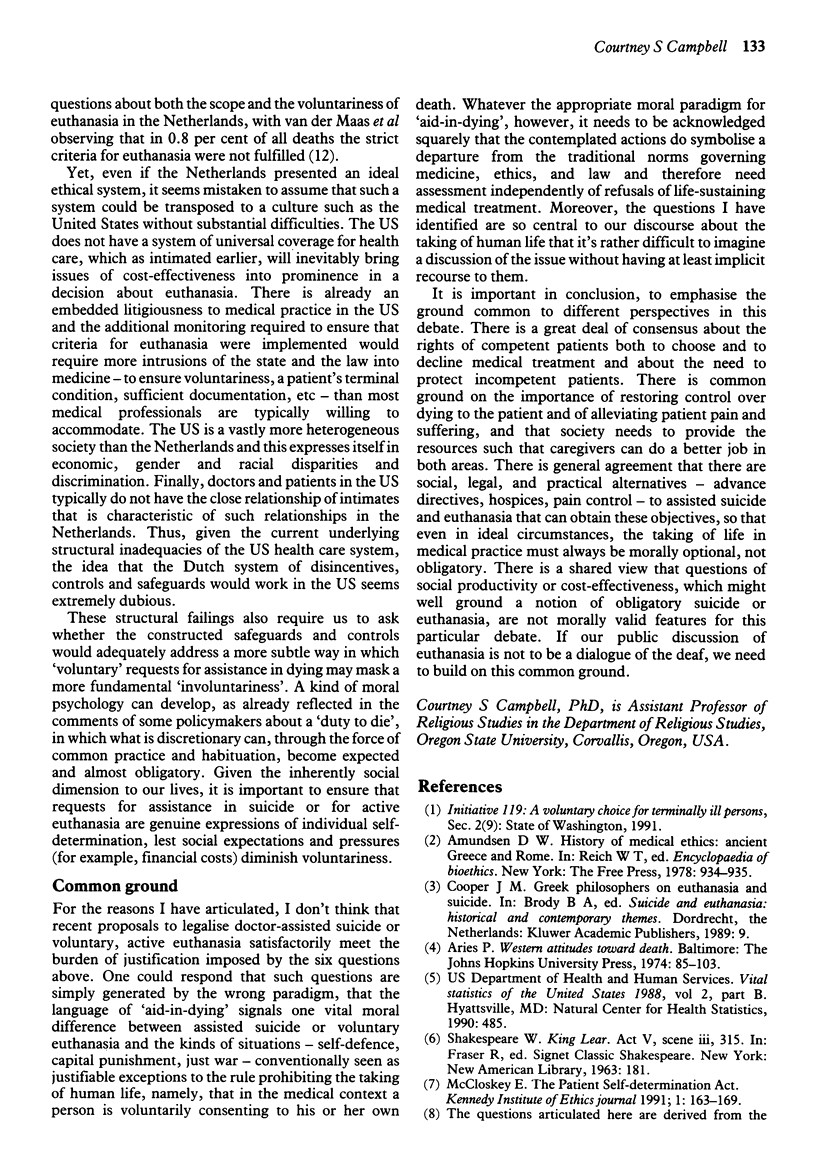
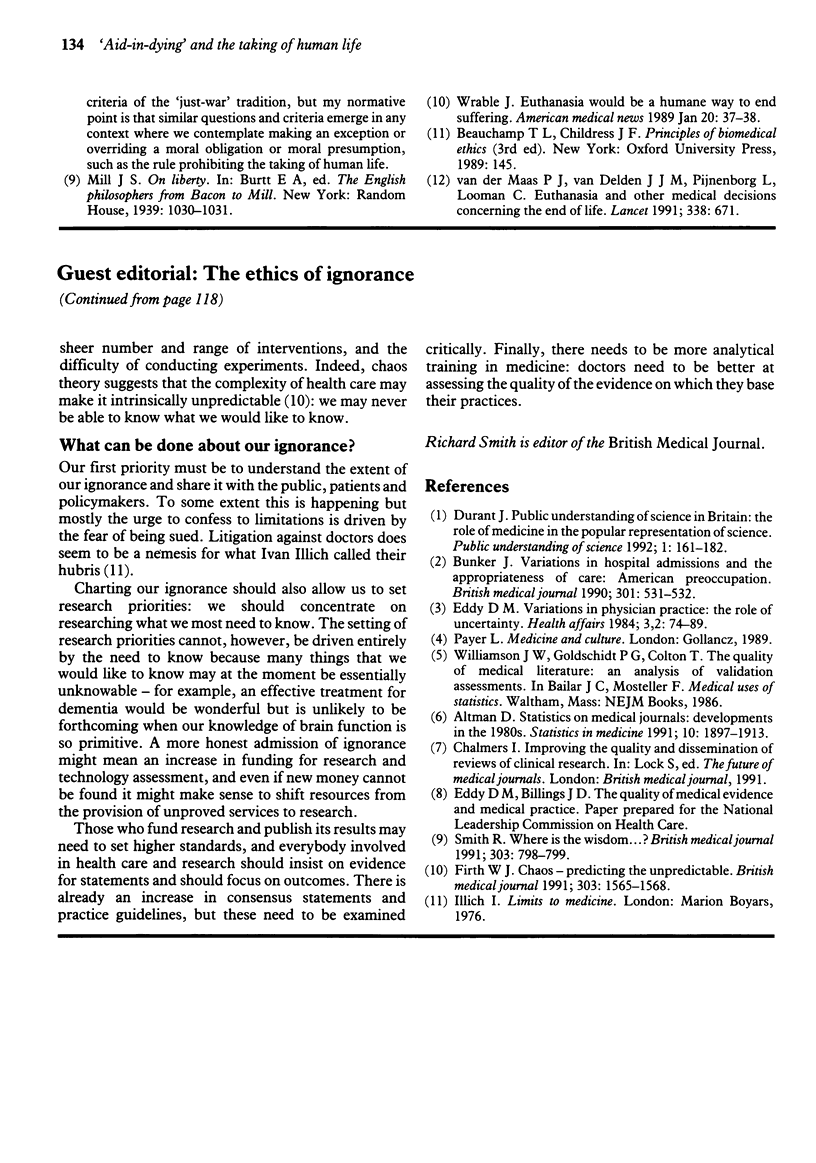
Selected References
These references are in PubMed. This may not be the complete list of references from this article.
- McCloskey E. L. The Patient Self-Determination Act. Kennedy Inst Ethics J. 1991 Jun;1(2):163–169. doi: 10.1353/ken.0.0062. [DOI] [PubMed] [Google Scholar]


